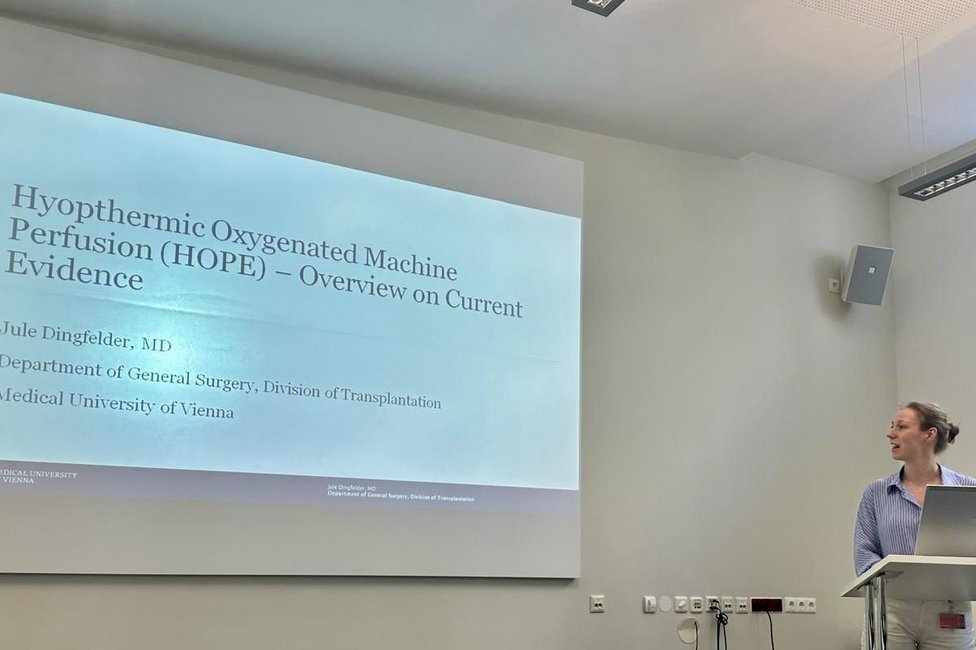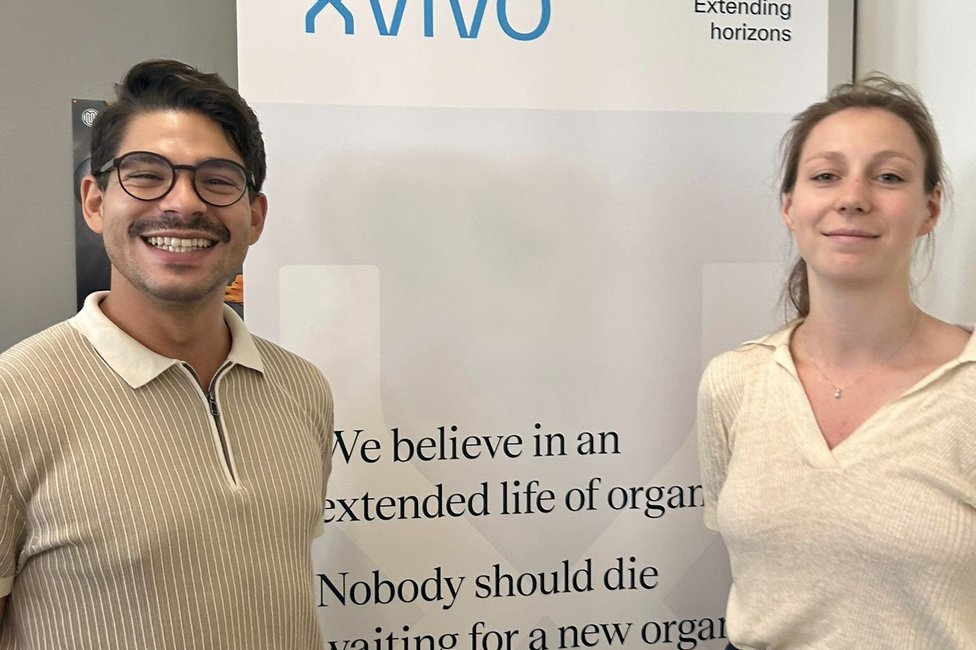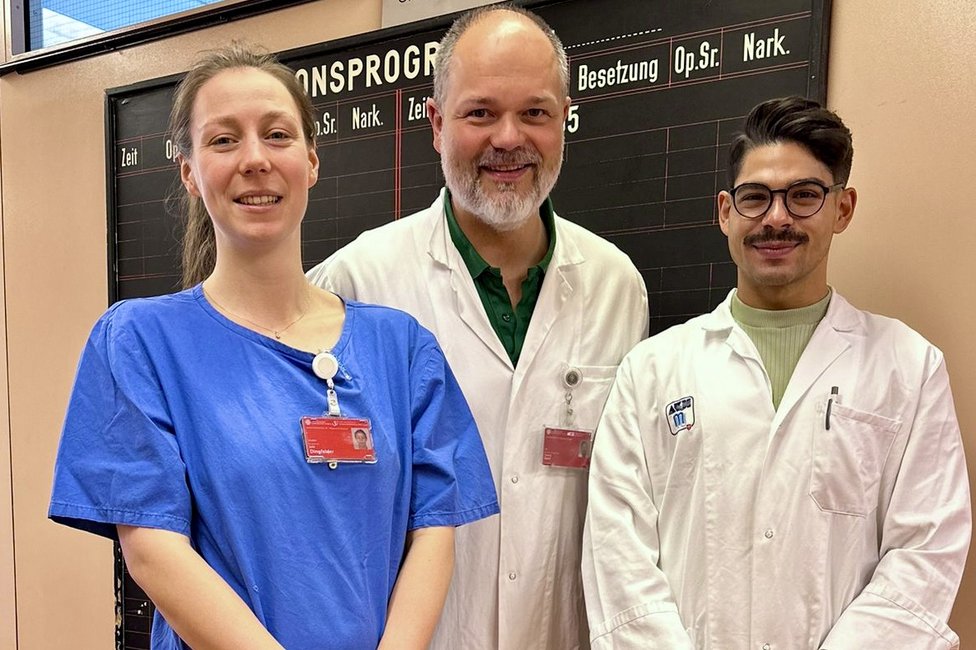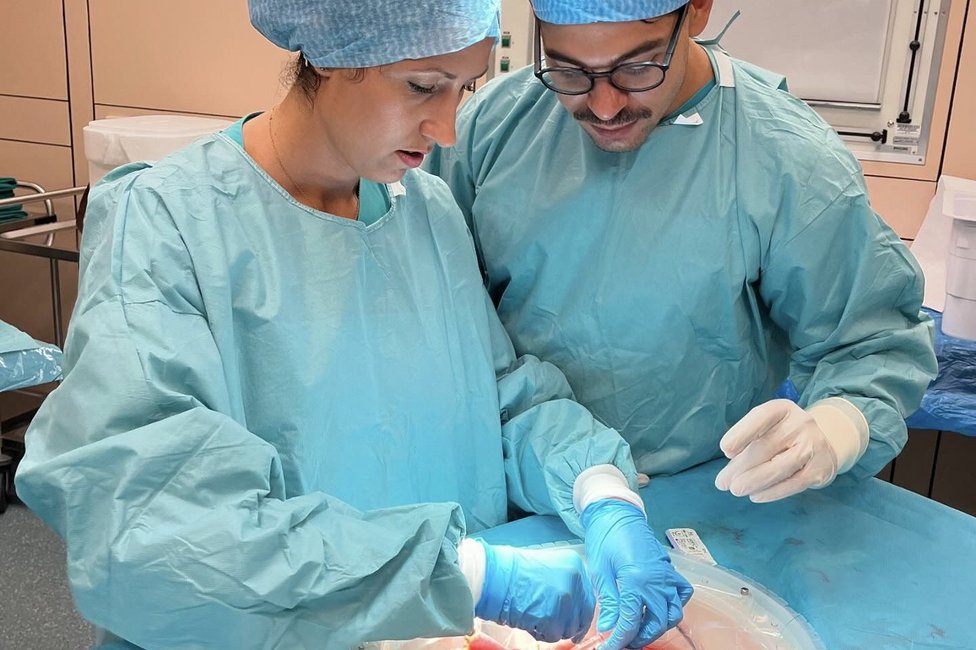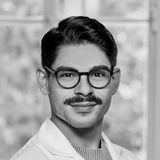The Vienna Summer School for Hypothermic Machine Perfusion of the Liver took place for the first time this year at the Division of Transplantation of the Department of General Surgery.
Dr. Jule Dingfelder and Dr. David Pereyra (both from the machine perfusion working group, headed by PD. Dr. Georg Györi) organized an exciting scientific program as well as an outstanding real-life hands-on session with cadaver grafts in the experimental laboratory. In addition to local experts, guest speakers from the transplant centers in Rotterdam (NL) and Munich (GER) helped to make the Summer School an unforgettable experience.
During this two-day course, international participants from Austria, Germany, Switzerland and the UK were taught all the skills they need to implement a machine perfusion program at their own center. A central component of the course was the logistical feasibility and economic aspects of such programs.
Machine perfusion has become very important in liver transplantation in recent years. Hypothermic machine perfusion in particular is considered to be very promising, as it enables the preservation of donor organs as well as their optimization. Numerous studies have shown the positive influence of hypothermic machine perfusion on the reduction of bile duct complications and the improvement of organ survival after liver transplantation. The Department of Transplantation in Vienna (chief: Prof. Dr. Gabriela Berlakovich) is one of the pioneers of machine perfusion in liver transplantation in Austria and has now perfused 230 organs since the first perfusion in 2018 and has consequently established hypothermic machine perfusion as the standard of care.
The next Vienna Summer School for Machine Perfusion is planned for summer 2025. The event was organized with the support of XVIVO® (Mölndal, Sweden).

